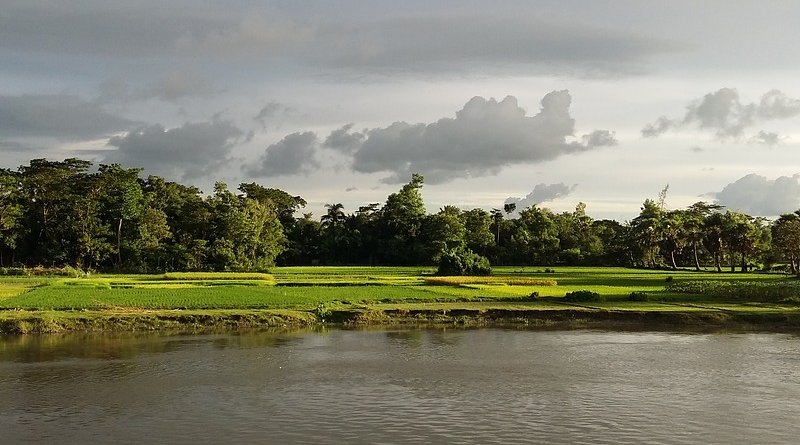Learning Climate Resilience From Bangladesh – OpEd
By Mazhar Iqbal
Pakistan should learn about climate resilience from Bangladesh. The disasters caused by floods in these two South Asian countries are dreadful and devastating. Though, there is a significant difference between the two nations regarding building resources to fight against such disasters.
After decades of resilience education, Bangladesh has acquired specialized expertise and management skills for dealing with floods. Pakistan, which has not faced as much destruction from floods as its financial mismanagement, is now scrambling to deal with the devastating monsoon floods. The global donor community has noticed Pakistan’s scrambling, at least to the extent of making generous pledges in Geneva.
This is significant progress on the global climate action agenda. The international donor community has committed over $9 billion to help Pakistan recover from the disastrous floods of 2022. Surprisingly, the pledges have exceeded Pakistan’s external financing goals. Climate activists and environment campaigners are hopeful that it will pave the way for a new model on raising funds to fight climate disasters in poorer countries.
How will these funds be used? It is a big question not only for Pakistan but also for donors. Pakistan can divert such financing toward building climate resilience like Bangladesh.Climate resilience is the ability of a country to anticipate, prepare for, and respond to hazardous events, trends, or disturbances related to climate. The World Meteorological Organization says that Bangladesh is an innovator in climate resilience.
In improving climate resilience, Pakistan can learn from Bangladesh how to anticipate how climate change will create or alter new climate hazards. Pakistan can also seek guidance from Bangladesh regarding measures to better deal with these threats.
Bangladesh’s flood warning system has now become a world-recognized system for building climate resilience in a country with relatively few resources. Experts have hailed its success as a model for other low-income countries looking to develop early warning systems in the face of changing climates.
According to the flood resilience portal, Bangladesh is one of the most flood-prone countries in the world. Floods have huge costs for Bangladesh, both regarding lives, property, livelihoods, and development gains lost.
This low-lying, coastal country crisscrossed by large rivers, is incredibly vulnerable to climate change and the associated increases in sea level and rainfall that result in floods.
World-renown climate action organizations are now working with Bangladesh to build and strengthen their capacity to plan, prepare for, withstand, and recover from floods.
Apart from building infrastructure and technical expertise, Bangladesh has begun diverse and sustainable livelihood programs for community members, building their financial capacity to cope with floods. The country has a world-class system to protect people from disasters. And an amazing element of this climate resilience ecosystem is the role of women. The flood-prone country has an army of women volunteers to fight against the worst impacts of climate change.
Historically, Bangladesh is one of the most disaster-prone countries in the world and still experiences several types of cyclones every year. Flooding and coastal erosion often wreak havoc on low-lying coastal areas. Last year, the country was hit by the worst floods of the century, leaving more than 7 million people without food or shelter.
Though scientists say climate change may have played a role in the disaster, the number of deaths due to extreme weather events has decreased significantly. This is largely due to a multi-level early warning system consisting of weather monitoring equipment, communication systems, and a comprehensive network of volunteers.Importantly, half of these volunteers are women, who are working hard to overcome the massive gender gap in those most affected by disasters.
Early Warning Systems are a proven, effective, and possible climate adaptation measure that saves lives and provides a tenfold return on investment.
The floods data, statistics, and hard facts are key factors in getting the best results from an early warning system. Poorer countries cannot afford to get access to such valuable information by acquiring it from private funding.
Luckily, access to such global data is free of charge. In fact, under the arrangement of the World Meteorological Organization, all member countries can now exchange meteorological data free of charge. This means that other less developed and climate change-prone countries, including Bangladesh and Pakistan, can now have access to far-flung weather conditions and information.
The writer is a London-based researcher, educator, and author. He can be reached on Twitter @MIMazhar or by email at [email protected]

